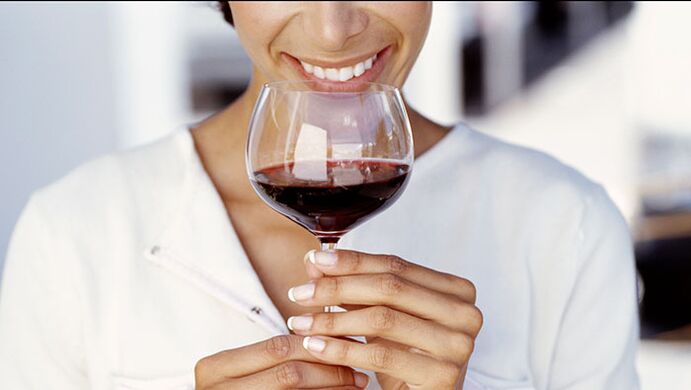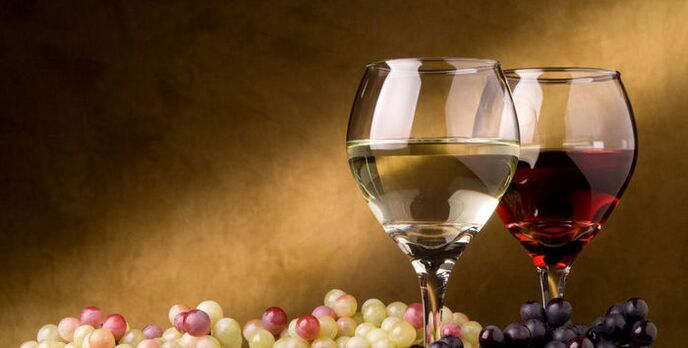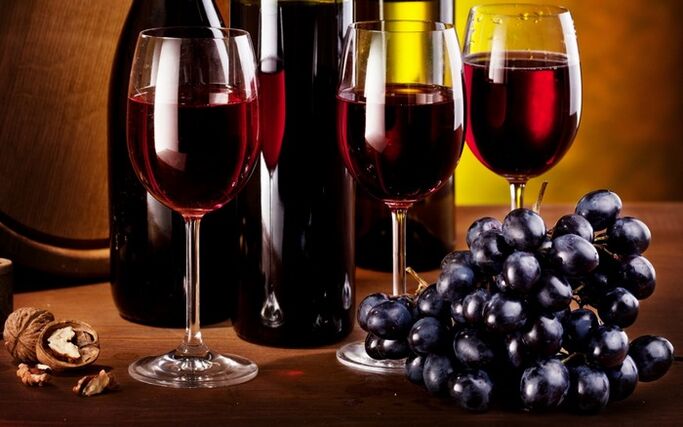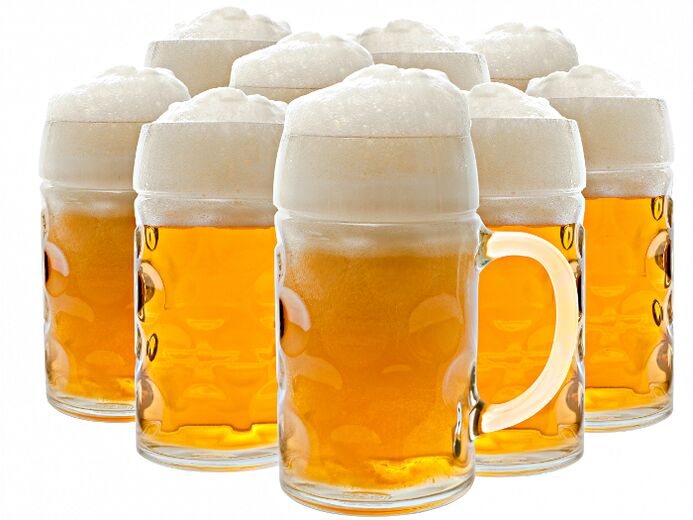A person who is forced to follow a diet for some reason should consider combining it with diet before consuming alcohol. Strong alcohol consumption through diet can only harm the body and prevent the loss of extra pounds, as many alcoholic beverages are high in calories. But that doesn’t mean you shouldn’t drink alcohol while following a diet. Some drinks may be moderately combined with diet.
Properties of alcoholic beverages

It is often the case that when we lose weight, we only count the calories of the food at the table, but we do not take into account ordinary and alcoholic beverages. Some people go to the other extreme and believe that alcohol can only shape the diet, does not allow them to control the amount of food, and therefore does not drink at all.
However, we do not all know that during the diet, some alcoholic beverages (low-calorie) on the contrary, are useful because they improve digestion, speed up metabolic processes, which creates favorable conditions for weight loss. In this case, you need to know exactly what alcohol you can consume during your diet, as well as whether it is possible to drink strong alcohol in your diet.
To understand what alcohol you can drink during your diet, you need to study the characteristics of its effects on your body. It is therefore worth noting that all alcoholic beverages contain ethanol. It is a fairly high calorie substance that is well absorbed by our body. Alcohol is classified as follows:
- non-distilled alcoholic beverages such as wine and beer;
- refined beverages, namely vodka, whiskey, alcohol.
In such cases, alcohol contributes to the appearance of obesity:
- If you drink during the festive feast, you will inevitably have to eat, and because alcohol increases your appetite, you can eat much more than your diet requires.
- Strong alcoholic beverages are high in calories. That is, if you drink vodka, cognac, whiskey, and other strong alcoholic beverages, you can begin to heal, which will nullify all your efforts during the diet.
- Alcoholic beverages that contain a lot of sugar, yeast, or other nutrients (cream, milk, eggs, various flavors) should not be consumed during dieting as they contribute to rapid weight gain. It is best to consume alcohol with minimal carbohydrates.
- Even if you don’t take into account how strong your alcohol is, it’s worth remembering that ethyl alcohol slows down fat processing processes. As a result, you may not gain weight, but you will not be able to lose weight with such a diet.
- In addition, if you consume even low-alcohol drinks regularly, it contributes to disrupting the body’s metabolic processes. This leads to the development of alcoholism and weight gain.
Alcoholic beverages are allowed during the diet

Now let's figure out what to drink with diet? If all alcoholic beverages are evaluated on a caloric basis, they will be the highest calorie beverage as it contains a lot of sugar and other nutritional additives that give it a certain flavor. Therefore, it is better to refuse to use it during the diet.
During the diet, it is allowed to drink drinks based on grape juice. Not only are they low in calories, but they are also very useful as they contain many useful substances, trace elements and acids. Therefore, you can rest assured that you may lose wine while dieting. This is absolutely possible and even necessary, as wine contains substances that contribute to weight loss, namely:
- Tartaric acid increases the acidity of gastric juice, which significantly improves digestive processes. However, people with high acidity should be careful as wine can damage the digestive system.
- If wine is consumed in moderation, the beneficial substances in the drink improve the body’s metabolic processes, which is also very beneficial for people on a diet.
- Drinking a little wine once a day improves the absorption of iron, which will have a beneficial effect on blood composition and well-being.
- Red wine contains a special substance that reduces the amount of insulin in the body. It will also have a positive effect on weight loss, as excess insulin has been shown to contribute to weight gain.
However, during the diet, it is also important what kind of wine we drink, as different grape drinks have different compositions and strengths.
Skin

When deciding what to drink during your diet, wine should be preferred. It is important to consider the caloric content of the wine drink. For example, if you decide to drink champagne, you need to know the sugar content of the drink:
- the semi-dry sparkling wine has a caloric content of about 80 kcal and a maximum of 9 g of sugar per 100 g of such alcohol;
- dry champagne with a slightly lower sugar concentration and a caloric content of 70 kcal;
- in semi-sweet champagne up to 89 kcal and 1. 2% sugar;
- a sweet carbonated beverage contains 92 kcal per 100 grams and 1. 5% carbohydrate;
- gross has 57 kcal and 0. 3 percent carbs.
As you can see, brut may be an ideal choice for an alcoholic beverage during a diet as it has the lowest calorie content. Natural wines are a good alternative to gross, but their caloric content should also be considered:
- dessert wines have the highest calorie content, containing about 178 kcal per 100 g of beverage;
- in strong wines the caloric content reaches 165 kcal;
- sweet red wines - up to 100 kcal;
- semi-sweet red wines - about 90 kcal;
- semi-dry wine drinks - up to 80 kcal;
- dry white wine - about 70 kcal.
From this list, the best choice for your diet will be the last option as the lowest calorie, but you can also afford a glass of dry or semi-dry wine. It has been shown that people who regularly consumed small amounts of red wine kept their skin youthful, heart, blood vessel and joint health. And all this is due to the polyphenols found in red wine.
Advice:if you want to drink strong or sweet wine, dilute it with some drinking water. This reduces the caloric content and sugar concentration of the product.
Row

If you really like beer, then the light varieties of this low-alcohol drink are allowed in dieting because they contain fewer calories due to their reduced strength. However, you don’t have to drink beer with salty snacks, as this makes you drink even more, forcing you to drink more beer than necessary.
It is worth noting that when drinking beer, there is an increased urination, which contributes to the elimination of potassium, magnesium and other useful substances from the body. Beer also contains a lot of natural estrogen, which promotes fat storage. If you choose light beers, pay attention to their caloric content:
- most calories (46 kcal) in beer, with a strength of 4%;
- in a beverage with a strength not exceeding 2, 8%, only 35 kcal;
- frothy alcoholic beverage with a strength of 1, 8%, only 30 kilocalories.
Recommendation!If you drink shake while losing weight, use Diet Coke instead of a sugary, normal drink to make it.
Alcohol is forbidden in the diet
Vodka, cognac and other strong alcoholic beverages are considered to be the highest in calories, so it is better to refuse to use them during your diet. So every 100 grams of vodka has 260 kcal. It is also worth giving up other alcoholic beverages based on vodka. The number of calories in them is distributed as follows:
- tequila contains about 275 kcal;
- anise vodka contains 300 kcal;
- sake - 260 kcal;
- rum, gin, tonic - up to 220 kcal;
- whiskey - 280 kcal;
- sweet liqueurs - up to 280 kcal.
If you want to drink as little as possible, try not to drink on an empty stomach. If you order a liqueur or cocktail, give up the sweet dessert completely. They usually drink a little liqueur and don’t eat anything as it is very high in calories.































